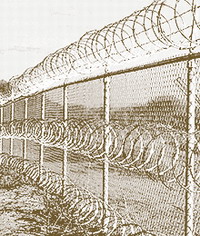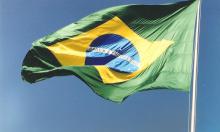Australia swaps asylum seekers with America
Australia and the United States have signed an agreement to exchange hundreds of refugees held in offshore detention camps.

In Washington, U.S. State Department spokesman Sean McCormack denied that a formal agreement exists but said "an informal arrangement for mutual assistance" has been agreed upon to help each other with asylum seekers.
Critics say the plan will encourage a new wave of asylum seekers to brave the treacherous ocean voyage to Australia by presenting their destination as a back door to the United States.
U.N. High Commissioner for Refugees Richard Towle described the deal as "novel," telling Australian Broadcasting Corp. television the United States is "a highly desirable resettlement outcome for many people."
Under the deal, around 90 asylum seekers - Sri Lankans and Burmese - currently held at an Australian-run immigration detention camp on the Pacific island nation of Nauru could be resettled in the United States if they qualify as genuine refugees.
Australia, in turn, could resettle up to 200 Cubans and Haitians a year who are seeking asylum at the U.S. naval base at Guantanamo Bay, Cuba - flying them around the world to an unfamiliar country with few cultural links, the government said.
Prime Minister John Howard said the plan would drive home the message to asylum seekers arriving in Australian waters that they would have no chance of living in the country.
"People who want to come to Australia will be deterred by anything that sends a message that getting to the Australian mainland illegally is not going to happen," Howard told reporters.
But opposition immigration spokesman Tony Burke said many asylum seekers headed for Australia would be more than happy with the United States as a consolation prize.
Burke said the plan would encourage a new wave to asylum seekers to pay people smugglers to take them by boat to Christmas Island, a remote Australian territory in the Indian Ocean which is a favorite drop off point for human traffickers from Indonesia.
"What John Howard is doing is sending a message to the world that says: 'if you can get a people-smuggler to get you as far as Christmas Island, then John Howard will pick up the fare to New York,"' Burke said.
Under the so-called Pacific solution, introduced by the government in 2001 and widely criticized by human rights groups, asylum seekers who attempt to reach Australia by boat are intercepted by the navy at sea and sent to impoverished island camps where their refugee applications are assessed.
Immigration Minister Kevin Andrews said the plan would not present Australia as a back door to the United States because refugees might also be sent to other countries.
Andrews said the asylum seekers would have to qualify as refugees before they could be exchanged, and that both countries could refuse to accept individuals.
Andrews' spokeswoman, Kate Walshe, said up to 400 refugees could be exchanged between the two countries - a maximum of 200 from each - under the scheme each year.
The arrangement was not a refugee-for-refugee exchange, and there was no requirement that the number of refugees transferred be matched by the number received, Walshe said.
She declined to say which country had initiated the deal but said it would be reviewed in two years.
State Department spokesman McCormack said the arrangement makes no legal demands of either party. It "provides that each will consider resettlement of people interdicted at sea and found to be in need of international protection."
He said no referrals have been made yet, and nobody who is referred for resettlement will be forced to accept the offer.
Pamela Curr, spokeswoman of the Asylum Seeker Resource Center in Australia, described the scheme as a "dark and murky" political fix that would not deter asylum seekers from coming to Australia.
Subscribe to Pravda.Ru Telegram channel, Facebook, RSS!




